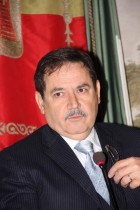Studying at the University of Verona
Here you can find information on the organisational aspects of the Programme, lecture timetables, learning activities and useful contact details for your time at the University, from enrolment to graduation.
Academic calendar
The academic calendar shows the deadlines and scheduled events that are relevant to students, teaching and technical-administrative staff of the University. Public holidays and University closures are also indicated. The academic year normally begins on 1 October each year and ends on 30 September of the following year.
Course calendar
The Academic Calendar sets out the degree programme lecture and exam timetables, as well as the relevant university closure dates..
| Period | From | To |
|---|---|---|
| Sem. 1A | Oct 1, 2009 | Nov 15, 2009 |
| Sem. 1B | Nov 16, 2009 | Jan 17, 2010 |
| Sem. 2A | Feb 22, 2010 | Apr 18, 2010 |
| Sem. 2B | Apr 19, 2010 | Jun 6, 2010 |
| Session | From | To |
|---|---|---|
| Sessione invernale (A.A. 2008-2009) | Jan 18, 2010 | Feb 21, 2010 |
| Sessione estiva (esami sospesi dal 6 al 9 luglio) | Jun 7, 2010 | Jul 31, 2010 |
| Sessione autunnale | Sep 1, 2010 | Sep 30, 2010 |
| Session | From | To |
|---|---|---|
| Sessione estiva | Jul 6, 2010 | Jul 8, 2010 |
| Sessione autunnale - 1° Appello | Oct 19, 2010 | Oct 21, 2010 |
| Sessione autunnale - 2° Appello | Dec 14, 2010 | Dec 16, 2010 |
| Sessione invernale | Mar 15, 2011 | Mar 17, 2011 |
| Period | From | To |
|---|---|---|
| Festa di Ognissanti | Nov 1, 2009 | Nov 1, 2009 |
| Festa dell'Immacolata Concezione | Dec 8, 2009 | Dec 8, 2009 |
| Vacanze Natalizie | Dec 21, 2009 | Jan 6, 2010 |
| Vacanze Pasquali | Apr 2, 2010 | Apr 6, 2010 |
| Festa della Liberazione | Apr 25, 2010 | Apr 25, 2010 |
| Festa dei lavoratori | May 1, 2010 | May 1, 2010 |
| Festività del Santo Patrono di Verona S.Zeno | May 21, 2010 | May 21, 2010 |
| Festa della Repubblica | Jun 2, 2010 | Jun 2, 2010 |
| Vacanze Estive | Aug 9, 2010 | Aug 15, 2010 |
Exam calendar
Exam dates and rounds are managed by the relevant Humanistic Studies Teaching and Student Services Unit.
To view all the exam sessions available, please use the Exam dashboard on ESSE3.
If you forgot your login details or have problems logging in, please contact the relevant IT HelpDesk, or check the login details recovery web page.
Should you have any doubts or questions, please check the Enrollment FAQs
Academic staff
 lorenzo.carpane@univr.it
lorenzo.carpane@univr.it
 margherita.ferrari@univr.it
margherita.ferrari@univr.it
Gelati Carmen
 carmen.gelati@univr.it
carmen.gelati@univr.it
 mario.guidorizzi@univr.it
mario.guidorizzi@univr.it

Longo Mario
 mario.longo@univr.it
mario.longo@univr.it
 045 8028393
045 8028393
 annamaria.piussi@univr.it
annamaria.piussi@univr.it
 gabriel.sala@univr.it
gabriel.sala@univr.it

Tacconi Giuseppe
 giuseppe.tacconi@univr.it
giuseppe.tacconi@univr.it
 +39 045 802 8655
+39 045 802 8655
Study Plan
The Study Plan includes all modules, teaching and learning activities that each student will need to undertake during their time at the University.
Please select your Study Plan based on your enrollment year.
1° Year
| Modules | Credits | TAF | SSD |
|---|
History of Education and Pedagogy
Cultural Anthropology
History of Philosophy
Sociology and analysis of social dynamics
Un insegnamento a scelta tra i seguentiUn insegnamento a scelta tra i seguenti2° Year activated in the A.Y. 2010/2011
| Modules | Credits | TAF | SSD |
|---|
Un insegnamento a scelta tra i seguentiUn insegnamento a scelta tra i seguenti3° Year activated in the A.Y. 2011/2012
| Modules | Credits | TAF | SSD |
|---|
Social and Cultural Geography
Un insegnamento a scelta tra i seguentiTheories and techniques of the primary socialization
Un insegnamento a scelta tra i seguenti| Modules | Credits | TAF | SSD |
|---|
History of Education and Pedagogy
Cultural Anthropology
History of Philosophy
Sociology and analysis of social dynamics
Un insegnamento a scelta tra i seguentiUn insegnamento a scelta tra i seguenti| Modules | Credits | TAF | SSD |
|---|
Un insegnamento a scelta tra i seguentiUn insegnamento a scelta tra i seguenti| Modules | Credits | TAF | SSD |
|---|
Social and Cultural Geography
Un insegnamento a scelta tra i seguentiTheories and techniques of the primary socialization
Un insegnamento a scelta tra i seguentiLegend | Type of training activity (TTA)
TAF (Type of Educational Activity) All courses and activities are classified into different types of educational activities, indicated by a letter.
Cultural Anthropology [Cognomi M-Z] (2009/2010)
Teaching code
4S00742
Teacher
Coordinator
Credits
9
Language
Italian
Scientific Disciplinary Sector (SSD)
M-DEA/01 - DEMOLOGY, ETHNOLOGY AND ANTHROPOLOGY
Period
Sem. 2A, Sem. 2B
Location
VERONA
Learning outcomes
This course, designed for undergraduate students, uses several teaching techniques and classroom activities (lectures, ethnographic interviews, encounters with experts, ethnographic films) to introduce the student to a critical knowledge of key concepts, methods, and tools of anthropology, and of debates that originate within contemporaries theoretical and ethnographic contexts.
Program
The first part of the course will introduce students to some of the key notions of the discipline such as culture, border, belonging, relativism/universalim, empathy, knowledges, practices, looking at them from a decentered perspective which will allow for a defamilarization of the conventional gaze, a gaze too often blurred by our taken-for-granted certitudes.
In the second half of the course, through the use of ethnographic study cases from Oceania, we will analyze in greater detail the relations between ethnographic gaze and locally produced knowledge. A part of the course will be devoted to methodology focusing on the ethnographic interview.
Readings:
1) Conrad Kottak, Antropologia Culturale, McGraw-Hill, Milano, 2008.
2) E. Gnecchi Ruscone e A. Paini (eds), Antropologia dell’Oceania, Milano, Raffaello Cortina, 2009.
3) Sally Morgan, Tjalaminu Mia, Blaze Kwaymullina (eds), Heartsick for Country, Fremantle Press, 2008 (students are invited to read the text in original).
4) One among those listed below:
M. Aria (ed) Cercando nel vuoto. La memoria perduta e ritrovata in Polinesia francese, Pacini, Pisa, 2007;
B. de l’Estoile, Le Goût des Autres. De l’exposition coloniale aux arts premiers, Flammarion, Paris, 2007;
A. Favole (ed), Isole nella corrente. Il Pacifico “francofono”: temi e prospettive di ricerca, In La Ricerca Folklorica n. 55, 2007;
A. Paini, Il filo e l’aquilone. I confini della differenza in una società kanak della Nuova Caledonia Le Nuove Muse, Torino, 2007;
F. Tamisari e F. Di Blasio (eds), La sfida dell’arte indigena australiana. Tradizione, innovazione e contemporaneità, Jaca Book, Milano, 2007.
Examination Methods
final oral exam
Type D and Type F activities
Modules not yet included
Career prospects
Module/Programme news
News for students
There you will find information, resources and services useful during your time at the University (Student’s exam record, your study plan on ESSE3, Distance Learning courses, university email account, office forms, administrative procedures, etc.). You can log into MyUnivr with your GIA login details: only in this way will you be able to receive notification of all the notices from your teachers and your secretariat via email and soon also via the Univr app.
Graduation
Documents
| Title | Info File |
|---|---|
|
|
pdf, it, 99 KB, 13/10/23 |
|
|
pdf, it, 101 KB, 10/04/24 |
List of theses and work experience proposals
| theses proposals | Research area |
|---|---|
| Ambienti e contesti di lavoro con minori | Various topics |
| Analisi dei personal network di sostegno | Various topics |
| comunicazioni relative alla tesi | Various topics |
| Il teatro come contesto educativo | Various topics |
| I processi di globalizzazione culturale nella società contemporanea | Various topics |
| La social network analysis applicata allo studio dei contesti educativi | Various topics |
| L'educatore ed i progetti europei | Various topics |
| L'impegno associativo in ambito educativo | Various topics |
| Politiche sociali e contesti educativi | Various topics |
| Progetti di collaborazione con le istituzioni scolastiche | Various topics |
| PROPOSTE TESI AMBITO GEOGRAFICO | Various topics |
| Scuola e capitale sociale | Various topics |
Linguistic training CLA
Gestione carriere
Student mentoring
Practical information for students
Documents
| Title | Info File |
|---|---|
|
|
pdf, it, 325 KB, 02/05/23 |
|
|
pdf, it, 212 KB, 02/05/23 |
|
|
pdf, it, 131 KB, 02/05/23 |
Stage e Tirocini
Le ulteriori attività formative (crediti F) sono interamente coperte dall’attività di tirocinio “indiretto” (1 cfu) da svolgersi nel secondo anno e di tirocinio “diretto” (14 cfu) da svolgersi presso enti convenzionati per un numero complessivo di 15 cfu (375 ore). Chi è iscritta/o al curriculum servizi per l’infanzia è tenuta/o a svolgere il tirocinio presso nidi e servizi per la prima infanzia per almeno il 50% delle ore.
Il tirocinio professionalizzante (375 ore, pari a 15 cfu), è obbligatorio sia nella sua forma diretta che indiretta.
Il tirocinio indiretto, della durata di 25 ore a frequenza obbligatoria al 75%, si svolge in Università per 20 ore e in forma di lavoro individuale per 5 ore e consiste in un accompagnamento iniziale delle/degli studenti da parte dei tutor attraverso un percorso formativo dotandoli di conoscenze e strumenti adeguati a osservare, comprendere e rielaborare criticamente l’esperienza di tirocinio nei servizi educativi e ad affrontare il tirocinio negli enti con metodo e consapevolezza. Il percorso, da attuare in gruppi da 20-25 persone sotto la supervisione di un tutor, risponde alle esigenze costantemente espresse sia dalle/dagli studenti stessi sia dalle parti sociali che dai referenti degli enti convenzionati.
Il tirocinio diretto si propone di raggiungere i seguenti obiettivi:
- fare esperienza diretta di attività professionali, che richiedono un livello di preparazione al lavoro educativo;
- approfondire in particolare il rapporto tra preparazione teorica, acquisita mediante lo studio, ed esperienza pratica, tra mondo del sapere e della cultura e mondo del lavoro e delle professioni;
Al termine del tirocinio diretto lo studente deve presentare una relazione scritta, nella modalità concordata con il tutor accademico.
Nuove Linee Guida per il tirocinio di Scienze dell'educazione.
- Tutte le informazioni in merito agli stage per futuri studenti sono disponibili alla pagina Stage e tirocini.
- Tutte le informazioni in merito agli stage per studenti iscritti sono pubblicate in MyUnivr - come fare per - stage e tirocini.
- Tutte le informazioni in merito agli stage per le aziende sono disponili alla pagina Stage e tirocini per azienze.
Documents
| Title | Info File |
|---|---|
|
|
pdf, it, 302 KB, 16/07/21 |

















